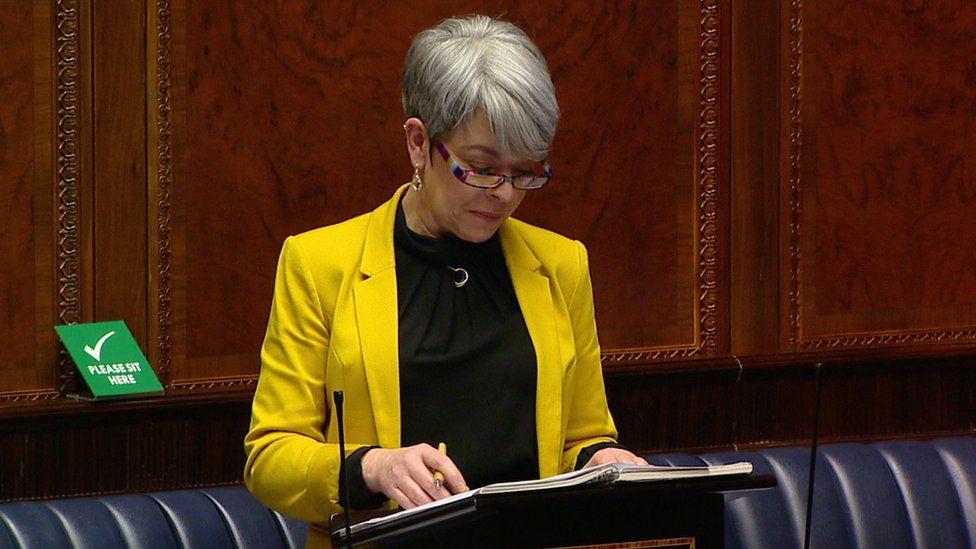ARTICLE AD BOX

Former Green Party assembly member Clare Bailey developed the bill
By Jayne McCormack
BBC News NI political correspondent
A bill to ban anti-abortion protests at Northern Ireland health clinics does not "disproportionately interfere" with protesters' rights, the Supreme Court has ruled.
Former assembly member Clare Bailey developed the bill to set up so-called safe access zones outside clinics where abortions are carried out.
Dame Brenda King referred it to the UK's highest court, asking judges there to determine whether part of the bill disproportionately interfered with the rights of people protesting against abortion.
It was the first time a piece of Northern Ireland legislation had been referred to the Supreme Court in this way.
The legislation can now go on to become law, but it is not clear how long it will take to implement.
The bill would make it an offence to protest against abortion within the zones, directly argue or harass people who may be attending the clinics or to obstruct access to the premises in question.
Restrictions 'can be justified'
Dame Brenda King had asked the court to determine whether the bill was within the legislative competence of the Northern Ireland Assembly.
Her concerns related to the omission of what is known as the "reasonable excuse" defence from the bill.
On Wednesday, Supreme Court president Lord Reed said judges had unanimously agreed that the legislation was within the assembly's competence.
He said the bill had a "legitimate aim" and while it restricted the exercise of protesters' rights under the European Convention on Human Rights, the restrictions could be justified.
"It seeks to ensure women have access to advice and treatment relating to lawful termination of pregnancy under conditions which respect their privacy and dignity, and are not driven instead to less safe alternatives," Lord Reed said.
He said the legislation also protected staff working at health clinics from being intimidated, harassed or abused.
"The right to access healthcare and pursue employment are protected by article eight of the Convention," Lord Reed said.
The court found the legislation balanced competing rights, concluding that as drafted the bill was "justifiable".
"The restrictions imposed are required to protect the rights of women seeking treatment or advice, and are also in the interests of the wider community, including other patients and staff of clinics and hospitals," Lord Reed added.
Reaction to ruling
The Northern Ireland Human Rights Commission welcomed the court's ruling.
Chief commissioner Alyson Kilpatrick said it was a "positive affirmation of women and girls' rights to protection from harassment" when accessing abortion services.
Sinn Féin deputy leader Michelle O'Neill also welcomed the judgement, which she described as a step forward to protect patients and health workers.

 1 year ago
21
1 year ago
21








 English (US)
English (US)